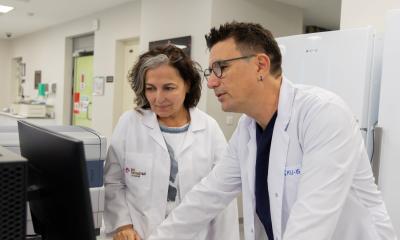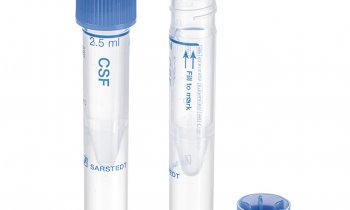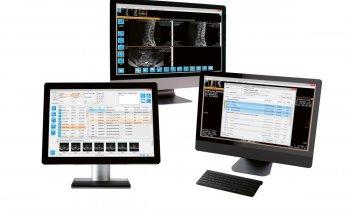News • Antibiotic overuse
Could a paper device diagnose infectious disease?
Imagine a small paper device that can rapidly reveal from a drop of blood whether an infection is bacterial or viral. The device could help reduce the overuse of antibiotics – which kill bacteria, not viruses. Misuse of antibiotics has led to antimicrobial resistance, a growing global public health issue.
Senior biomedical engineering students at Rutgers University–New Brunswick came up with the idea for the technology as part of their senior design project. The concept won second place and $50,000 in the Massachusetts General Hospital Ambulatory Practice of the Future 2017 Student Technology Prize for Primary Healthcare competition. The Rutgers team, including seniors Charles Rabolli, Neel Nirgudkar, Sarah Salter and Sudeepti Vedula, is advised by Adam J. Gormley, an assistant professor in the Department of Biomedical Engineering in the School of Engineering.
It’s time to put it to the test and see if we can make a diagnostic that can differentiate between bacterial and viral infections
Adam J. Gormley
“We feel so honored to be given the opportunity with this award to flesh out an idea that we think will have great global health implications,” said Salter, who like her fellow teammates plans to pursue a medical degree. “As we begin to plan our next steps, we appreciate the support we’ve received along the way from Professor Gormley and the wider Rutgers community.” The annual competition for student innovations recognizes the most promising technology that could improve primary-care delivery at the front lines of medicine. The Rutgers–New Brunswick group was among five finalist teams selected last year to submit more detailed proposals with an eye toward efficiency, cost-effectiveness, improving the patient experience, increased career satisfaction for primary-care teams and better long-term outcomes.
The Rutgers team enhanced their final proposal with input from faculty members, including School of Engineering Dean Thomas Farris, Stephen K. Burley (Center for Integrative Proteomics Research), and Richard Marlink (Global Health Institute), along with Rutgers Health and Rutgers Robert Wood Johnson Medical School physicians Tanaya Bhowmick (infectious diseases) and Alfred F. Tallia (family medicine and community health). The group was also invited to participate in a Rutgers Global Health Forum event with a delegation from Namibia. “I am so proud of this group and their great success,” Gormley said. “And now, with this win, it’s time to put it to the test and see if we can make a diagnostic that can differentiate between bacterial and viral infections.”
Source: Rutgers University-New Brunswick
28.03.2018











